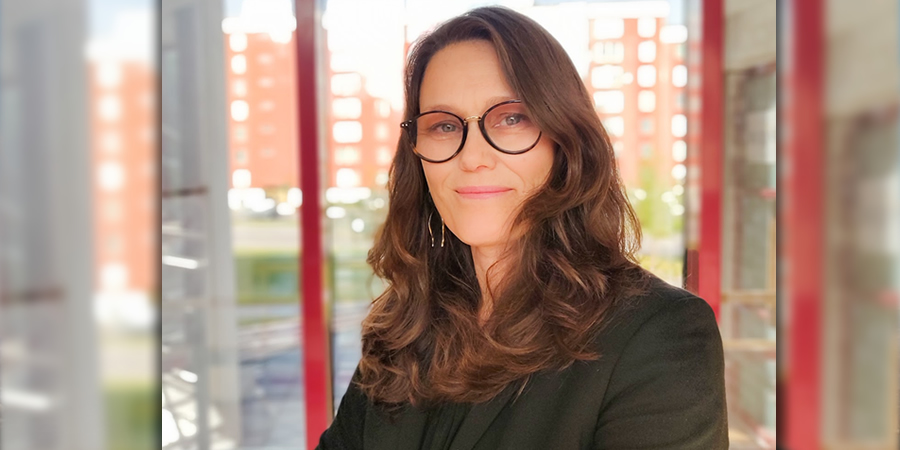By Orlaith Finn
Brighter is a health-tech company from Sweden, founded in 2007, with a vision to improve quality of life and reduce the complications of chronic diseases. Brighter developed ‘Actiste’, the world’s first unified diabetes care device with a mobile-connected service for monitoring and treating insulin-dependent diabetes. It is a pocket-sized device that combines the necessary functions for daily diabetes care and shares the data with healthcare providers. At GITEX technology week, Ericsson showcased Actiste as an example of how IoT solutions are being used in healthcare. Telecom Review secured an interview with Petra Kaur, Chief Commercial and Marketing Officer of Brighter, to find out more about how this will contribute to science and help to reduce the burden on healthcare systems around the world.
Ericsson was showcasing Actiste as an IoT solution here at GITEX. Can you tell us more about this product?
Actiste is a unique device that simplifies daily care, enables increased treatment adherence and affords convenience to patients, families and healthcare providers. The device checks your blood glucose, administers insulin and automatically logs and shares all information regarding insulin doses and blood sugar levels. It is delivered as part of a subscription service, including global connectivity, different levels of data sharing, and continuous replenishment of everyday supplies. The service is designed to enable individualized coaching to optimize and improve treatments.
This is the world’s first medical eSIM device. With the eSIM, end-to-end security and global roaming are built into the Actiste device. When you are monitoring a life-threatening disease, connectivity is paramount no matter where you are in the world. The treatment and health data have to be secured and available at all times. With this efficiently connected healthcare solution, Brighter is positioned to make a positive impact, not only in the treatment of diabetes, but several other chronic diseases that need to be monitored and benefit from the storage of data.
To what extent does this benefit both the patient and the healthcare system?
This is a patient-centric solution. Insulin-dependent patients meet with a doctor on average twice-a-year. In between the visits, motivation is lost, behaviors can change and this is where the problem begins. It is difficult for diabetics to monitor and treat their disease alone. Actiste engages patients and enables them to look after their health while also having a healthcare professional on-hand to oversee their progress.
For the healthcare system, it offers the opportunity for more optimized care. Doctors can make more informed decisions when they have all of this data stored. They have the opportunity to interfere if there is a problem, adjust insulin when required, interact with a patient and monitor all of this information. The benefits of sharing data are that doctors can be able to detect trends in behavior and use real-life data for providing feedback.
Ultimately, this solution benefits society as a whole. From an economic perspective, it will help create a positive outcome. There are currently 1.2 million people with diabetes in the UAE, a number that is increasing rapidly according to the International Diabetes Federation. The yearly health expenditure is approximately USD 2,705 million. Globally, diabetes caused at least USD 727 billion dollars in health expenditure in 2017 – 12% of total spending on adults. Complications from poor treatment adherence accounts for the majority of the cost. Consistently high blood glucose levels can lead to serious diseases affecting the heart and blood vessels, eyes, kidneys, nerves and teeth. In almost all high-income countries, diabetes is a leading cause of cardiovascular disease, blindness, kidney failure, and lower limb amputation. Maintaining blood glucose levels at or close to normal can help delay or prevent diabetes complications.
How important is your partnership with Ericsson in bringing healthcare solutions to market?
Our partnership with Ericsson is about 5 years old. They have supported us since the beginning. We love working with Ericsson as they are a very engaged partner and can provide a secure platform, a stable connectivity and a far reach. Ericsson are leaders in the industry and they are diversifying with the advancing technologies. This is significant to us and will become more relevant in the future.
Ericsson are showcasing our eSIM product as an example of IoT solutions in healthcare. While connected solutions previously required the installation of SIMs for each market and operator, the eSIM allows for localization of a global roaming profile. The eSIM also makes it more difficult to tamper with IoT devices, improving security for the device’s identity and the data fed into the operational system.
Security is very important to us. Ericsson provides a secure platform, but Brighter adds an extra layer. Actiste is an IoT device that stores personal data safely. Secure and compliant data collection provides insights that can improve diabetes treatment at the individual, local, national and global levels.
The device also can gather unidentifiable healthcare data to gain insight into predictive analysis and early signs of risk. Additionally, with this information we can oversee demographics; in the future we will see where the main problems lie and what the trends are.
For this reason, the technology we use is super important. In the future, we expect to have collected data that goes far beyond maintaining the patient and doctor relationship. It will provide information on society and countries as a whole. Therefore, we need optimal storage and seamless connectivity. This is why our partnership with Ericsson is so important.










